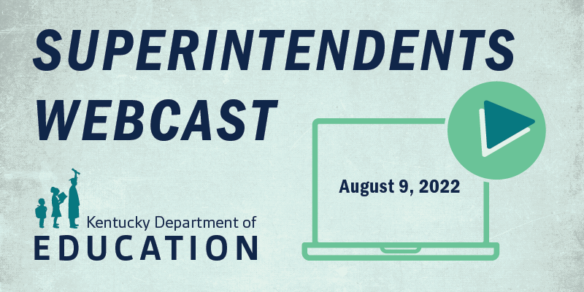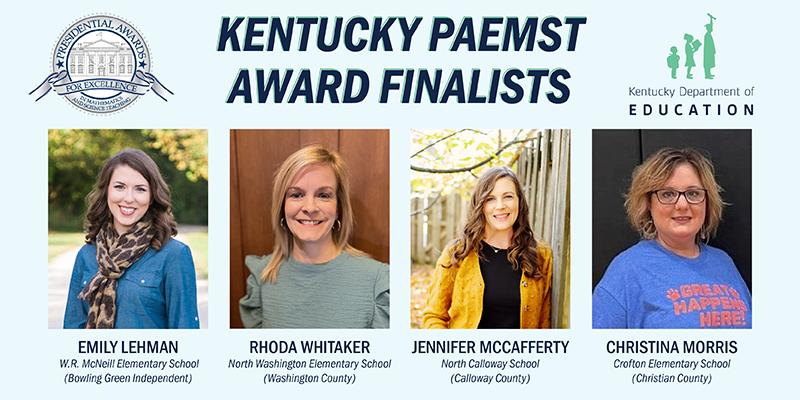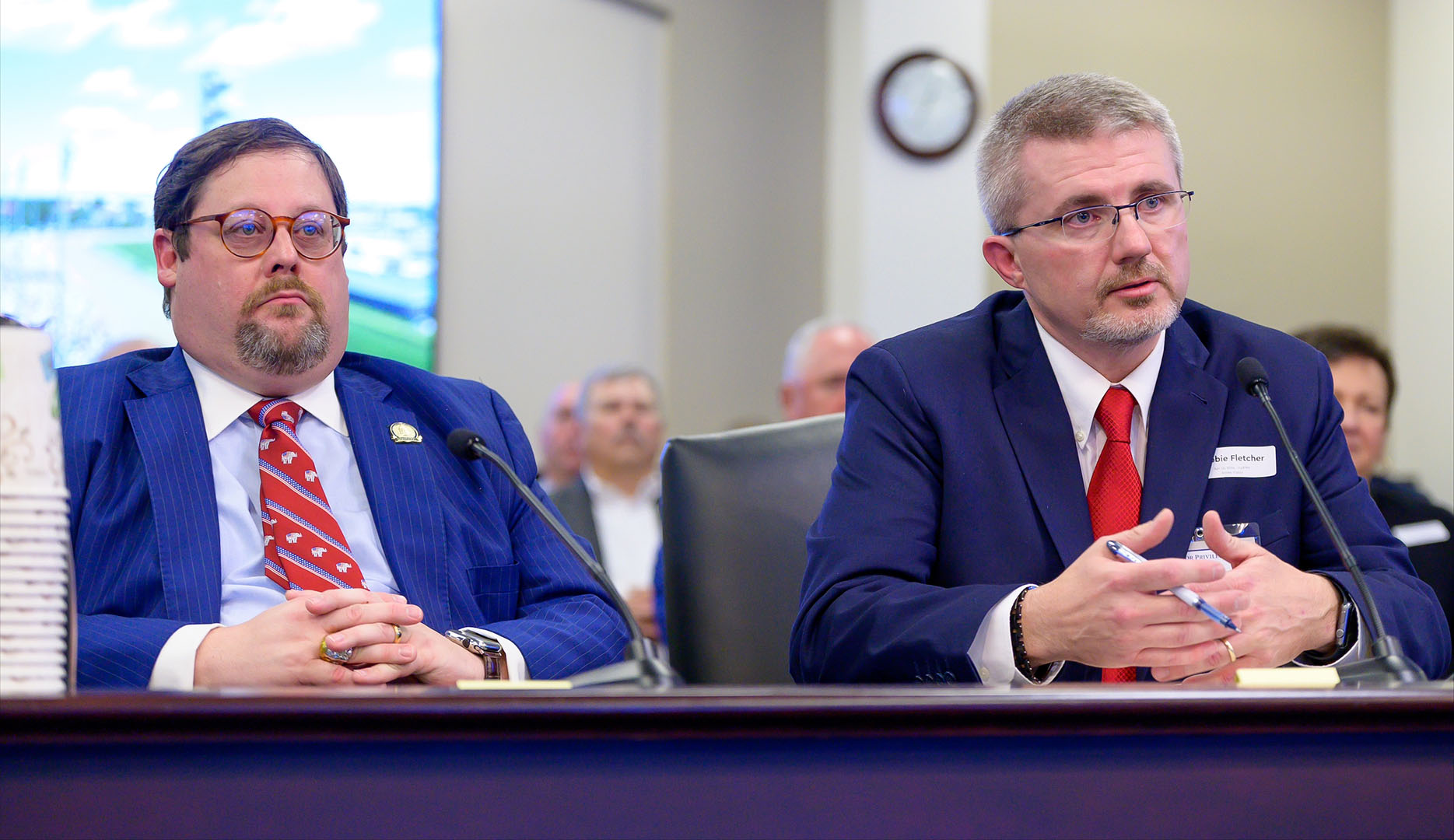
As students and teachers return to the classroom in the coming weeks, the Kentucky Department of Education (KDE) provided superintendents with several resources to prepare schools for the new school year.
During the Aug. 9 superintendents webcast, KDE Deputy Commissioner and Chief Equity Officer Thomas Woods-Tucker told superintendents about a professional development opportunity to learn how to implement KDE’s equity playbook into their classrooms.
Woods-Tucker said each school that plans to use the equity playbook in their professional development will receive personalized coaching.
“We know that when coaching is done correctly, when it’s implemented correctly, it helps to increase teacher efficacy … and it raises student achievement,” said Woods-Tucker.
During this professional learning opportunity, participants will identify a problem or practice related to one of the five equity pillars, including student achievement; disproportionality relative to student discipline; highly effective staff and high-quality instructional resources; utilization of funding and resources; and culture and climate.
The professional development will be delivered either in person at the participating school or online, and there will be three entry points to work with the equity playbook: fall 2022, spring 2023 or fall 2023.
KDE Chief Academic Officer Micki Ray also joined the webcast to let superintendents know about three key resources connected to literacy that have been published by KDE’s Office of Teaching and Learning (OTL).
Per Senate Bill 9, KDE was charged with compiling a list of approved universal literacy screeners and diagnostics. On KDE’s Early Literacy Screening Assessments webpage, OTL has listed KDE’s selection criteria, an “at-a-glance” comparison chart and one-pagers on what measures KDE uses to determine what is valid and reliable in a literacy screener.
Christie Biggerstaff, OTL’s director of early literacy, announced that approximately 2,020 educators signed up for the Kentucky Reading Academies, a new initiative that brings the Language Essentials for Teachers of Reading and Spelling (LETRS) professional learning to educators across the commonwealth. LETRS training teaches the how, what and why of literacy acquisition to educators to improve literacy instruction and positively impact long-term student success.
A live, virtual welcome celebration and LETRS kickoff will be held on Aug. 23 at 4:30 p.m. ET.
Ray also said a Reading and Writing Instruction Resource Consumer Guide has been created to assist districts and schools in the evaluation and selection of high-quality reading and writing instructional resources aligned to the Kentucky Academic Standards for Reading and Writing. The consumer guide is available on the High-Quality Instructional Resources webpage.
United We Learn toolkit
Education Commissioner and Chief Learner Jason E. Glass reminded superintendents about the newly launched toolkit for United We Learn.
The toolkit can be used to facilitate deeper discussions with stakeholders throughout the superintendents’ school districts and communities to discuss how the United We Learn vision can support a better future for education.
The United We Learn vision builds around three big ideas: creating a more vibrant experience for every student, encouraging innovation in our schools and creating a bold new future for Kentucky’s schools through collaboration with our communities.
As an example of how superintendents can start conversations in their districts around United We Learn, Glass tasked the group to imagine they are presenting at their back-to-school event with families and give an example of how their school is building the first big idea: a “vibrant student experience.”
Sheri Satterly, superintendent at Frankfort Independent Schools, said at Second Street School (Frankfort Independent), they are revitalizing their school grounds and cafeterias though a Farm-to-School Grant that is facilitated through their gardening club.
Spencer County Superintendent Chuck Abell said students in his district participate in “genius hour” activities, where they get the opportunity to research subjects that interest them, then prepare and present their topics as a demonstration of what they have learned.
Glass encouraged superintendents to use the ideas that were shared as inspiration for what can be done in their own districts.
“One of the things that I’ve repeatedly tried to stress here in Kentucky is that there is … capacity in this place that’s been going on for a number of years,” said Glass. “We’ve reached the tipping point where I think it’s just ready to explode with life and flourish in the state.”
In other business, superintendents:
- Heard an update from the Kentucky Department of Public Health (DPH). DPH’s Deputy Commissioner for Clinical Affairs, Connie White, M.D., said DPH has released updated guidance for K-12 School Operations for In-Person Learning. While much of the guidance remains the same as the previous school year, DPH has created several resources to consolidate information for schools, including a one-pager that summarizes the K-12 school COVID testing program funded by CDC for this fall semester.
- Heard from Kelly Foster, associate commissioner in KDE’s Office of Continuous Improvement and Support, on applications to be recognized as a National ESEA Distinguished School. The deadline to apply is Sept. 2. Foster also reminded superintendents to submit their district’s Safe Return to In-Person Instruction and Continuity of Services plan, as required by the American Rescue Plan Elementary and Secondary School Emergency Relief program. Updated plans must be submitted through KDE’s website and be posted on the district’s website;
- Heard an update from Kentucky Board of Education Chair Lu S. Young on the board’s August work session and regular meeting; and
- Heard an update from KDE Chief Communications Officer Toni Konz Tatman.



Leave A Comment